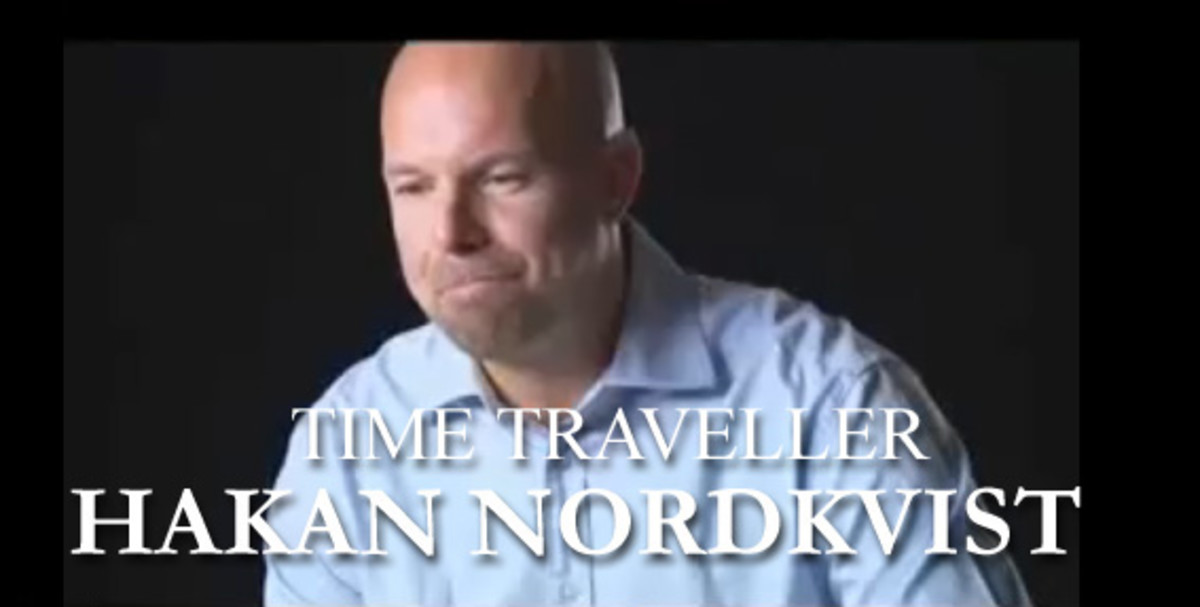Creating Lifelike Characters: It's All In The Details
Character development is a key part of writing your story. From your characters, your plot, setting and theme can be born. It is possible to start with a different component of stories when writing but I find character development the best way to begin.
Making your character three dimensional and deep is a key part in making your story interesting. Readers can grow bored of a cookie cutter character that they've seen in stories a hundred times before. There are several aspects to making your characters seem like real people which I will discuss in this article. The main things you need to get your character development going is to research so your character and setting make sense, point of view and background of your character, motivations and alignment of your character, and details of your character (yes the little things matter).

Be Informed
Know Your
Stuff...
Most fiction writers don't realize how important research is. Knowledge
sets the foundation of your story. Even if you're creating whole new worlds and
creatures, they can still be grounded into reality with a little bit of
knowledge. Plus, with research, you can put a whole new spin on creatures and
concepts already thought of before.
Reading other author's books can help you get a feel for your genre. See how they write, how they ground their worlds into reality. See how much detail they put into their characters. Then ask yourself some questions like this:
- If your character's a thief: How do you pick a lock? How does one plan a heist?
- If your character's a soldier: Do you know the lingo? How does one shoot a rifle? What does the uniform look like?
- If your character's a medieval knight: What is the knight's code? How heavy are the swords? Are knights rich or poor?
- If your character is from England: Do I know British slang? What are England's politics and how would my character feel about them? Do I know British pop culture?
- If your character's a fairy: Do fairies have to have wings? What culture do fairies come from? Are they tiny or big?
- If your character is a wolf: What's the wolf hierarchy? Do I know wolf anatomy? How do wolves choose mates? Why do wolves howl?
Picking up a book or just googling these questions can get you some answers. Psychology, philosophy, history, physiology, weaponry, setting, etc. are all important details to think about. Make sure your character details make sense. Developing a full complete character is all in the details.
Viewpoint and Background
Know Your
Character's Past...
The best way to know your character's point of view is to know their
background. You should understand why do they see the world a certain way. You
should know how they perceive things the way they do. You need to think about
things like where your character came from, what their childhood was like, who
their parents and peers were, what their interests were and are now.
For example:
- If your character is an evil sorceress: Why is she evil? What drove her to that path? Was she vicious as a child or was she completely different? What kind of environmen did she grow up in? What kind of parents did she have?
Even if your readers never see the character's past, it's important that you know it. This is the basis of who your character is now and most likely your readers will catch glimpses of their past through things like how they speak, how they react to things, how they keep their home, etc. When you're thinking of your character's history, ask yourself some of these questions:
- What was their childhood like? Who were their parents? Did they know them? How do they feel about them? Did they have a lot of friends or a just a few? What memories are most prominent for them? What sort of things impacted them? Do they have siblings? How close are they? Do they keep in touch?
- Where are they from? What's their culture? What's their culture like? Do they believe in gender roles? What are their traditions? What are their spiritual beliefs? What's the weather like where they're from? What are the politics like where they're from? What are their morals? How willing are they to try new things? How many places have they lived/visited? Do they consider this home?
- How do they earn a living? Is this the career they want? Are they happy with it? Did they have a different dream as a kid? Is this their first job or have they had others? How long have they been doing this? Is money most important? Did they work hard to get where they are or was it handed to them?
- Who was their first love? Have they ever even been in love? Are they in a relationship now? What is their sexual orientation and why?What do they think of romance? What do they want in a relationship? Do they avoid love? Do they believe in soul mates? Do they have children? Do they know if they have children?
Challenge yourself by creating some characters that are completely different from each other and from you. Even if its a character who you don't agree with, being able to understand them and argue for them will make them more realistic. Learning skills like this may even be useful to your everyday life.
More Hubs on Writing
Motivation and Alignment
Know What Alignment Your Character
Is...
Is your character good or evil? Is your character doing bad things for
good reasons? Is he or she the villain? The Hero? The Anti-Hero? These are all
things to think of when considering your character's alignment. Your
character's alignment will help shape their personality and you can use the
background you've created to explain why they are this particular alignment.
Let's look at some examples...
- If your character is a villain: He or she may be greedy. He or she may do things with only his or self in mind: Selfish. He or she is only looking out for number one: their survival or success.
- If your character is a Hero/Heroine: He or she would be selfless: always thinking of other before his or her self. He or she may be generous and compassionate. He or she wouldn't care about money or material things.
- If your character is the Anti-Hero: He or she is not evil, but nor are they goody-two-shoes. He or she does what the have to or what they feel is right. They gripe and groan and fuss but they do it anyway. I find these the most lovable.
For a little more clarification on alignment you can take a look at these basic guidelines:
Good
- A "good" character does what's right.
- A "good" character does things for the betterment of all.
- A "good" character respects all life.
- A "good" character must grow and learn over time.
- A "good" character usually doesn't kill, unless in self-defense, though they will feel bad about it later.
- A "good" character is not flawless.
Evil
- An "evil" character must have a motive.
- An "evil" character is selfish, only looking out for number one.
- An "evil" character is not always obviously evil.
- An "evil" character usually doesn't consider his or her self evil.
- An "evil" character is not always a criminal.
Neutral
- A "neutral" character doesn't often know what side they are on themselves.
- A "neutral" character might think they are good or bad, but their actions might say otherwise.
- A "neutral" character can sometimes be considered the Anti-Hero.
- A "neutral" character has a range of possibilities. They could be the adventurous type who always wants a part of it or they could be someone who just want everything to stop and stay out.
- A "neutral" character can be doing wrong things for the right reasons or right things for the wrong reasons.
- A "neutral" character is always hard to define.
Remember without conflict there isn't much of a story.
It's All In The Details
Know your character completely...
Yes the little things matter. Knowing as much as you can about your character is so important. Every little detail counts. The details bring your character to life. This is a huge portion of character development and there are lots of ways to approach this, if you're not sure where to start. There's exercises like The Character Setting Exercise, which you can find in my Tips for Breaking Through Writer's Block hub. There's also character profiles. You can do this with a simple facebook survey or a quick Google search for character profile writing exercises. You can write character sketches. You can even interview your characters. There's so many exercises available. So what are you waiting for? Go develop those characters.
All Rights Reserved
Skylar Spring © copyright 2011





